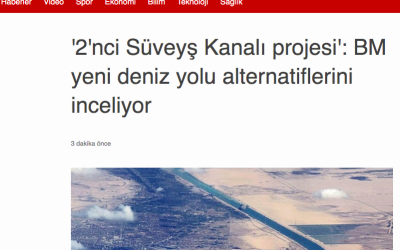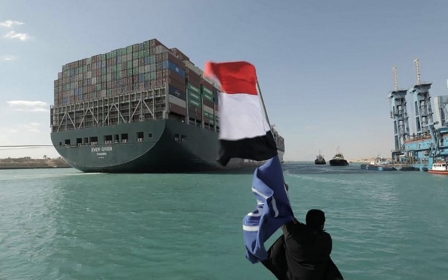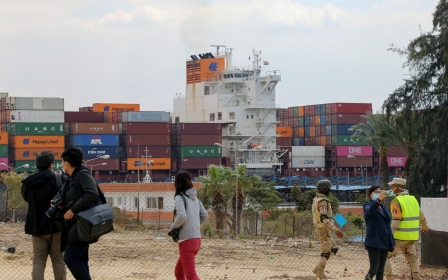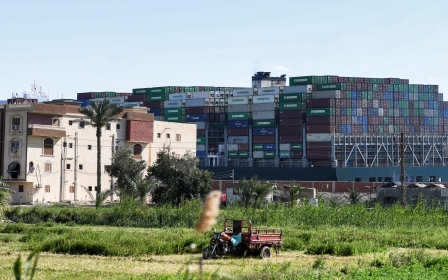Egypt: Suez Canal traffic now cleared, authorities say
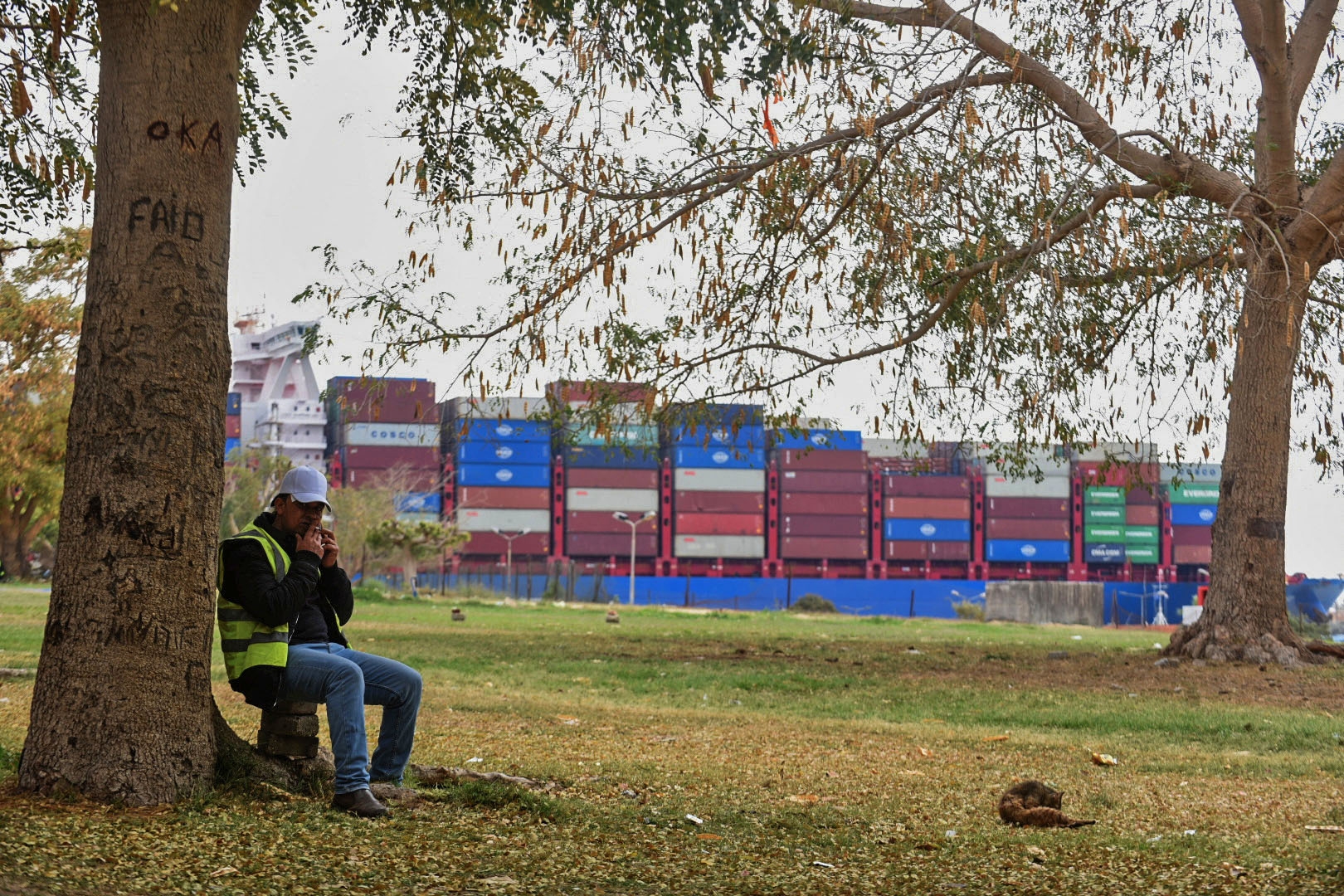
All vessels still waiting in the Suez Canal after the recent refloating of the very large container ship stuck there for nearly a week finally got through the passage on Saturday, according to the canal authority, which said results from an inquest into the grounding would be published soon.
Osama Rabie, chairman of the Suez Canal Authority (SCA), said earlier that 85 ships were expected to pass through either end of the waterway on Saturday.
These included the last 61 ships out of the 422 that were queueing when the 400-metre-long Ever Given container ship was dislodged on 29 March, ending the backlog that had built up, he added.
About 15 percent of world shipping traffic transits the Suez Canal.
The SCA began an investigation on Wednesday, 31 March, into the reasons why the vessel ran aground on 23 March and was able to block the waterway for so long, Rabie told Egypt's MBC Masr TV channel late on Friday.
"The investigation is going well and will take two more days, then we will announce the results," he added.
$1 billion in compensation
The SCA also announced on 31 March that Egypt was seeking more than $1bn in compensation from the company that owns the Ever Given. The owner of the vessel is Japanese company Shoei Kisen Kaisha.
The waterway is a crucial economic lifeline for Egypt, which poured resources into unblocking the ship.
Shipping rates for oil-product tankers nearly doubled after the ship became stranded, and the blockage disrupted global supply chains, threatening costly delays for companies already dealing with Covid-19 restrictions.
Rabie said that the compensation would be discussed after the investigations into the incident are completed.
"This is a state's right. God willing, we will reach a billion and a little more [in compensation]," he said in an interview with the Sada Al Balad channel on Wednesday.
Rabie pointed out that the damages include halting navigation traffic in the Suez Canal, which generates daily revenues for Egypt estimated at $14m.
He added that the SCA would calculate the costs of equipment work, damages, and canal workers over a period of six days in order to float the ship.
"This is the right of the country, we will not waste a penny," he said. "We left the boat intact."
Rabie said the ship will not leave Egypt before the end of the investigation, unless the company that owns the ship signs an agreement to pay the compensation.
In the event that the company refuses to do so, he said the matter would turn into a civil court case.
Poor infrastructure
Shipping industry sources told Reuters on Thursday that Egypt must move quickly to upgrade its technical infrastructure in order to avoid future shipping disruption.
The sources said that specialist equipment and associated procedures have long struggled to keep up with the ever-increasing size of commercial vessels.
"The average size of most vessels has increased exponentially over the last 15 years. The ability to salvage these bigger ships has not," said Peter Townsend, a marine insurance industry veteran.
"The issue is getting containers off essentially a 20-storey high building at sea."
Michael Kingston, an international shipping specialist and an adviser to the United Nation's International Maritime Organisation, said the SCA was unable to take the containers off the ship due to lack of equipment.
"The obvious way to lighten a vessel... is to take the containers off. They had no way of doing it. No equipment was readily available," he told Reuters.
Middle East Eye delivers independent and unrivalled coverage and analysis of the Middle East, North Africa and beyond. To learn more about republishing this content and the associated fees, please fill out this form. More about MEE can be found here.


